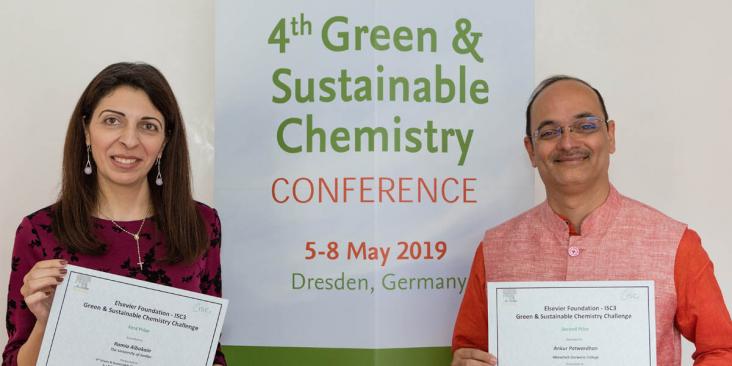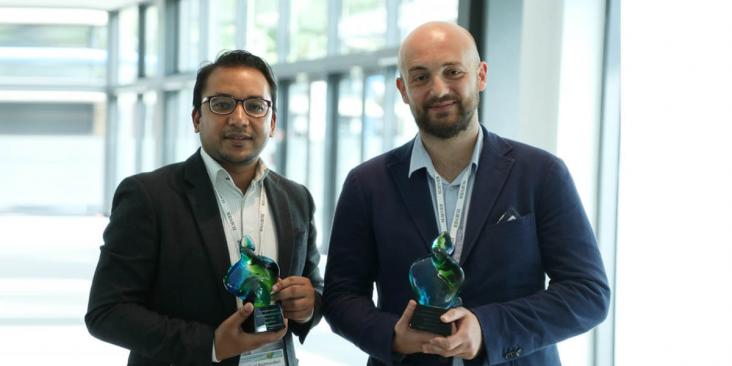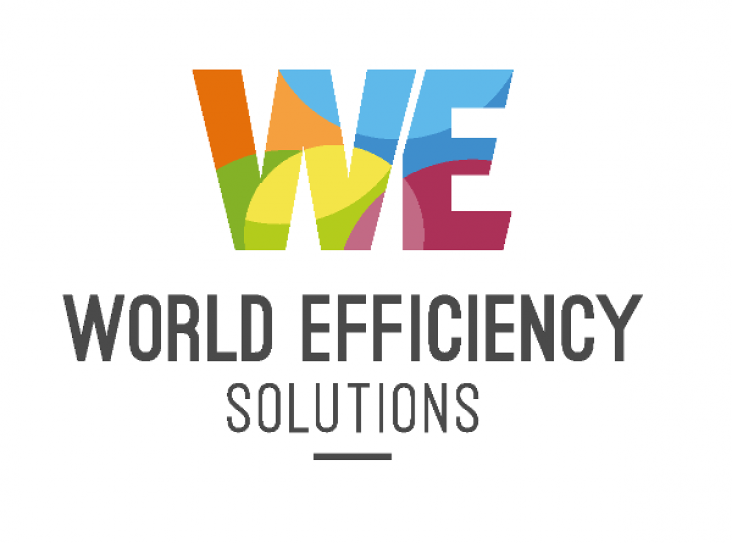Partner content
United Nations Global CompactUnited Nations Global Compact, June 2019
This report explores the role of business in securing a healthy, productive and well-governed ocean, contributing to SDGs 12, 13 and 14. Private sector innovation and investment, together with strong public and private governance frameworks, could exponentially increase the amount of sustainable resources delivered from the ocean, including healthy food, secure and affordable clean energy, and more efficient and lower-carbon transport.

This article highlights the winning proposals of the fourth edition of the Elsevier Foundation Green & Sustainable Chemistry Challenge. The winning proposals were chosen for their innovative green chemistry aspects and their large positive impact on the environment, contributing to SDGs 6, 13 and 15.
To advance goal 12 and 13, this report provides guidance on the “ambition loop” — a positive feedback loop in which bold Government policies and private sector leadership reinforce each other, and together, take climate action to the next level.
While most businesses understand and recognize their responsibility for the health and safety of their employees, few have connected the dots between their business actions and health outcomes in the market place, in society more generally and in the supply chain. This report outlines concrete actions for companies to embed health and empowerment in their policies, systems, and operations, advancing SDGs 3, 8 and 13.
This solution-focused report — the fourth in its series — offers 10 new markets which could help get the Global Goals back on track, such as blockchain-based land rights for Goal 10 and energy-efficient cooling for Goal 13. The report aims to demonstrate how global sustainability challenges and risks can be seen as opportunities.

Born in 1978, Pollutec is recognized today as the reference meeting place for environment professionals. The event develops multiple SDGs, including SDGs 6 (clean water and sanitation), 7 (affordable and clean energy), 12 (responsible consumption and production) and 13 (climate action).

This article highlights the winning proposals of the third edition of the Elsevier Foundation Green & Sustainable Chemistry Challenge. The winning proposals were chosen for their innovative green chemistry aspects and their large positive impact on the environment, contributing to SDGs 2, 12, 13 and 15.

World Future Energy Summit is the world’s leading business event for future energy and sustainability, showcasing pioneering technologies and ground-breaking thinking in energy, energy efficiency, water, solar, waste, smart cities, climate and the environment. As a global hub for business, innovation and knowledge exchange, World Future Energy Summit inspires the advancement and transfer of ideas, technology and investment across borders and between the public and private sectors worldwide, helping stimulate sustainable growth for all.

World Efficiency Solutions (WES) is the premier international meeting for the low-carbon and resource-efficient economy focussed on creating the low-carbon and resource-efficient market place. WES was first held in 2015 in Paris during COP21 negotiations, focusing on climate change solutions. World Efficiency develops a new environment consensus: economic and human activities must, to be sustainable, be redesigned to limit their impact on the environment while awareness of the planetary limits (climate change and resources scarcity) becomes widespread. A key objective for WES 2017 is to Identify new market opportunities aligned to the 2030 Sustainable Development Goals (estimated market opportunities are larger than USD 12 trillion) and the Paris Agreement on Climate Change from 2015.
Two years on from what was a very optimistic COP 21 in Paris, the general sense of where we are now is less certain. While there is a lot still to be positive about – especially some renewable energy generating technologies becoming much cheaper, there is a different landscape with new geo-political challenges, not least the changing political Administration in the US. With these uncertainties as a backdrop to climate change in 2017, Elsevier has brought together 3 leading experts to help understand the challenges related to implementation of SDG 13 and where we should go from here. The speakers include Alice Larkin from the Tyndall Centre for Climate Change, Roland Roesch from IRENA and Jenny Heeter from NREL. These speakers provide some contemporary context around the themes that we should be aware of, including progress on the latest Carbon reduction targets; importance of innovation within renewable energy sector; and how policy has a vital role to play.
